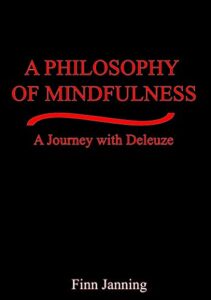
Imagine you were Søren Kierkegaard, the Danish existentialist. Then there would be nothing confusing about the remark: “Love your neighbor as yourself.”
In a letter to his fiancée, Regine Olsen, Kierkegaard wrote, “Freedom is the element of love.” Love presupposes freedom. All those who are free can love. Freedom is liberation from something that is obstructive: hatred or ignorance.
Even though Kierkegaard was a devoted Christian, he didn’t have any confidence in the official religious institutions of 19th-century Denmark. The priests, Kierkegaard said, spoke on behalf of a god with whom a person—any person—can only have a private relationship. God, he said, can’t or shouldn’t be institutionalized.
Freedom, then, requires not only the courage to stand against dominating and controlling norms or ideals represented by the church but also the imagination to believe that another approach to life is possible—including a personal relationship with God.
Each one of us is free to explore what is true and what isn’t. It means each one of us is forced to face our troubling self-doubt. For the same reason, Kierkegaard described “truth as subjectivity”; truth can be seen as a foundation on which one can stand without sinking. Hereby, he illustrated that one’s self, as in “yourself,” is constituted by both the relationship one has with oneself and how this relationship relates to a third party: a god, for example. Even for the
nonreligious, there is always something bigger than the individual.
This is important to keep in mind because how I love myself can easily turn into narcissism. Today, many are in love with their fantastic self-images. Thus, freedom also means liberation from how many people try to appear attractive in the eyes of the others. They lose their relationship with themselves being too eager to be loved or liked by the many. And if we don’t create normative ideals ourselves, then society would often do it for us, telling us to be smart, thinner or sexy in a particular way that is easy to consume. It can, of course, be difficult to know whether a person’s desire really is his or her own, or whether they are being seduced. Still, my Kierkegaardian point is: if one can’t leave one’s self-image alone, it’s difficult, if not impossible, to surrender oneself to something greater—like love.
Freedom is liberation from what hinders a more direct and honest relationship with life as such. Without honesty there is no love. All who have been in love know how love can knock one over and make one act ridiculously. Yet if one is not free, then one might be afraid of losing face or afraid of losing status/prestige. In Works of Love, Kierkegaard spends a lot of time elaborating on the remark, “Love your neighbor as yourself.” He speaks about our duty to do so. He makes love something normative.
Kierkegaard angles the argument around two themes. First, love is what is. He makes love ontological. Second, love is edifying; it builds up what is broken. To justify both claims, he makes us recall our own experiences with love. He understands love as generosity, kindness, and compassion—for example, when a person shares their food with you or when someone gives you a hug or smiles at you. He then proceeds to say that although some people experience more than others, we have all experienced enough to know love’s power—what he refers to as edifying or healing—and once we have enjoyed the fruit of love, it is our duty to share it as much as we can within our limits.
Kierkegaard used the remark “Love your neighbor as yourself” to manifest his attack on the church and common political practices. He asserted that far too many people understand the term “your neighbor” as referring to “my people,” “my gender,” “my nation,” or “my faith.” That’s a mistake. “Your neighbor” refers to all people: women or men, black or white, and people of all religions.
If we are not free, we can’t love all people. An unfree person is one fueled by hate or stupidity—for example, one who thinks that men are better than women, one ethnicity is better than another, and so forth.
Kierkegaard attacked, with good reason, our all too human generalization tendency— for instance, when some claim that “all X are …” Whatever the term “X” represents, we can be sure that the argument is not only stupid but also packed with fear—the fear of what is strange or different.
To love everyone like oneself, as I see it, doesn’t suggest that it is our duty to love all equally; rather, it is our duty to love everyone as equals.
I can accept the command love everyone as equals as worth striving to do, especially since it doesn’t hinder me in loving some people more intensely.

Leave a Reply